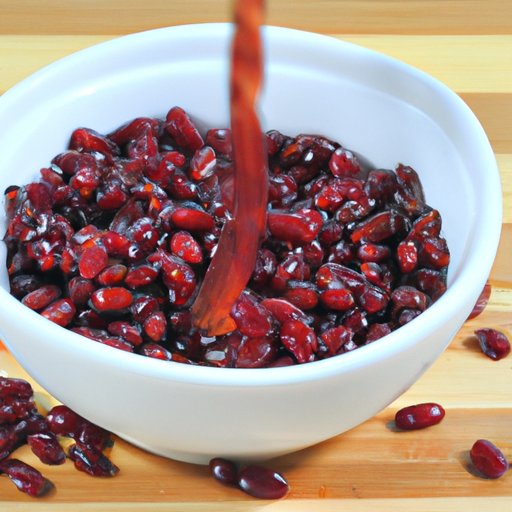
Introduction
Low red blood cell (RBC) count, known as anemia, is a prevalent condition that affects millions of people worldwide. RBCs are essential for carrying oxygen throughout the body and maintaining overall health. Having an RBC count below normal levels can lead to fatigue, weakness, and other complications. That’s why it’s crucial to understand how to increase low RBC count naturally. The purpose of this article is to provide valuable information about strategies and tips to help improve RBC count and optimize overall health.
Diet Recommendations
Eating a well-balanced diet is crucial to maintain a healthy RBC count. Foods that are rich in iron and protein can help boost the production of RBCs. Iron-rich foods like spinach, red meat, seafood, and beans help promote blood cell production by providing the essential nutrients required to build blood cells. Protein-rich foods, such as eggs, beans, and lentils, play a vital role in supplying amino acids that help form the structure of RBCs. A diet that includes a variety of these foods can efficiently improve RBC counts.
Lifestyle Changes
Several lifestyle factors can affect RBC counts. Smoking and alcohol consumption can cause damage to RBCs and lead to anemia. Managing stress is also essential, as stress hormones can reduce the production of RBCs. Engaging in regular exercise and practicing good sleep habits can also boost RBC counts. Exercise promotes blood flow and oxygen delivery, while good sleep habits help the body regenerate cells and improve overall health. Making these changes can be extremely helpful in increasing RBC counts naturally.
Natural Remedies
Several natural remedies can boost RBC counts, including herbs, plant extracts, and supplements. Vitamin B12 and folate are particularly important to promote RBC production. Additionally, herbs like ashwagandha and ginseng can help enhance the immune system, increase red blood cell count, and improve overall health. While these natural remedies are not a substitute for medical interventions, they can be an excellent way to support overall health.
Medical Interventions
In some cases, medical interventions are necessary to increase low RBC counts. Blood transfusions, erythropoietin medications, and bone marrow transplants are among the most effective treatments for anemia. These procedures can be life-saving for individuals with severe anemia or underlying health conditions that affect the production of RBCs. However, medical interventions should always be administered by a qualified healthcare provider.
Preventive Measures
Regular blood tests are crucial for detecting and preventing low RBC count. Early detection of underlying health conditions like kidney disease or cancers can help prevent anemia. Mitigating exposure to toxic substances and maintaining a well-balanced diet is also important. Avoiding exposure to toxic chemicals and pollutants that can damage the bone marrow is key to preventing anemia.
Conclusion
In conclusion, low RBC count is a significant health concern that requires attention, but the good news is that it’s treatable. Diet recommendations, lifestyle changes, natural remedies, medical interventions, and preventive measures are all key components in maintaining healthy RBC counts. By following these strategies and taking proactive steps to promote overall health, individuals can increase their RBC counts and improve their quality of life.





